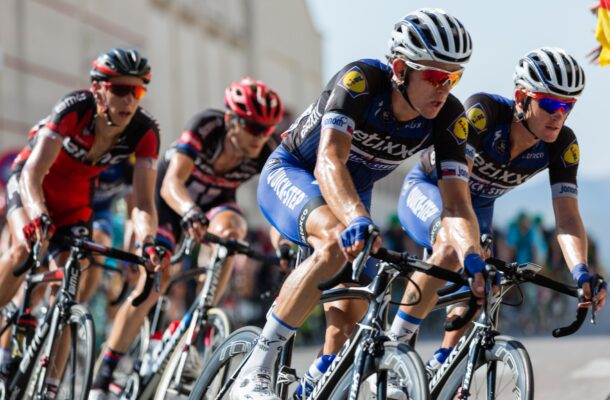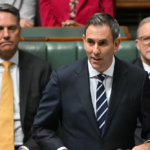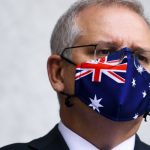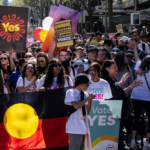Fair game: Lessons from sport for a fairer society and a stronger economy

This article is a revised and reduced version of an address by Andrew Leigh, the Assistant Minister for Competition, Charities and Treasury and the Assistant Minister for Employment. It was delivered at the inaugural Social Sciences Week Great Debate held at the National Library of Australia on the 5th of September 2023 to answer the question “Does Sport Unite or Divide Us?”
I acknowledge the Ngunnawal people, recognise any First Nations people present, and commit myself to the implementation in full of the Uluru Statement from the Heart, starting by voting yes on October 14.
Thanks to the Academy of Social Sciences and David Rowe for being such good sports as to put this on. Special thanks to David for attending. We began this conversation on his home turf when I launched my book Fair Game: Lessons from Sport for a Fairer Society and a Stronger Economy at UTS last year, and it’s fitting that he’s now playing an away game in Canberra. There’s no ‘I’ in ‘team’, and there’s no ‘I’ in David Rowe. Well, not more than one, anyway. I’m sure he’ll give it 110 percent today, and that sport will be the winner at the end of the day.
At its best, sport embodies both achievement and egalitarianism. We admire athletes who perform new feats of strength, speed and dexterity. We prize the idea that what matters isn’t their bank balances or their connections but their hard work. In team sports, we want to see a tournament in which the last-placed team of one season starts the following year with a fighting chance of winning.
This dual nature of sport has also provided memorable markers on Australia’s reconciliation journey: the Indigenous cricket team that toured England in 1868; the success of Cathy Freeman in the 400 metres at the 2000 Sydney Olympics; Johnathan Thurston captaining the North Queensland Cowboys to their first National Rugby League (NRL) premiership in 2015; Ash Barty becoming tennis’s world number one in 2019. Many white Australians who grew up in rural areas say that their first friendships with Indigenous people were forged on the playing field.
National and Personal Pride
Sport is a source of national and personal pride. Watch an international sporting competition and there’s a reasonable chance an Aussie will be in contention. But sport isn’t purely an elite activity. For millions of Australians, participating in sport is integral to a good life. Whether it’s a hit of tennis, a gym workout or a dance session, exercise is part of a life well lived.
As the father of three sons, my favourite moments with them are when we’re physically active: cycling down a mountain, bodysurfing a wave, or walking the dog. My wife Gweneth and I both notice that, after they’ve done some exercise, our boys are nicer people to be around: funnier, kinder, less inclined to squabble. That’s true of their parents too.
Like many Australians, I’m a sporting tragic. In my case, I trace the passion back to my grandfather, Keith Leigh, a Melbourne Methodist church minister who loved distance running. To celebrate his fiftieth birthday, Keith ran from his home in Rosanna in Melbourne’s north-east, all the way to Mount Dandenong to see his mother at a retirement home there, then back again.
The all-day run covered 80 kilometres (50 miles). My father Michael Leigh was also a marathon runner who grew up watching Ron Clarke, Herb Elliott and John Landy. My favourite photograph of my father and grandfather has them both lacing up their running shoes, big goofy grins on their faces.
In my own case, I love starting the day with a run in the bush, smelling the eucalypts and listening to the kookaburras. I get pleasure from sweating hard, and joy from training with people who are quicker than me. This Sunday, I’m running the Canberra 100 ultramarathon, and if you’re keen to join me, entries are still open.
Life Lessons
While sport isn’t life, it provides crucial life lessons. Training lays the groundwork for success. Stress is no excuse for bad behaviour. Respect your opponents. Everyone makes mistakes—it’s how you react that counts. Luck matters. Teams are greater than the sum of their parts. Win with dignity. Lose with integrity.
In sport, equal treatment is fundamental. Teams playing at an outdoor venue swap ends at half-time so that neither side gets the benefit of a tailwind. Martial arts fighters are matched by weight to ensure a fair fight. Amateur golf events and many professional horse races use a handicap system. In team sports, player drafts, salary caps and revenue-sharing are imposed to ensure that no team monopolises a tournament.
Sport isn’t utopia, but for all its flaws, it has much to teach us about creating a fairer society and a stronger economy. When he was inducted into the Sport Australia Hall of Fame, Australia’s greatest cricketer, Don Bradman, summed up his views on the relationship between success and decency:
When considering the stature of an athlete—or for that matter any person—I set great store on certain qualities which I believe to be essential in addition to skill. They are that the person conducts his or her life with dignity, with integrity, with courage, and perhaps most of all with modesty. These virtues are totally compatible with pride, ambition and competitiveness.
Sport teaches us that we don’t have to sacrifice egalitarianism and honour in pursuit of victory.
Fair Game: Lessons from Sport for a Fairer Society and a Stronger Economy is published by the Monash University Press.
Andrew Leigh is the Assistant Minister for Competition, Charities & Treasury and the Assistant Minister for Employment. Before entering Parliament in 2010, Andrew was a Professor of Economics at the Australian National University.














